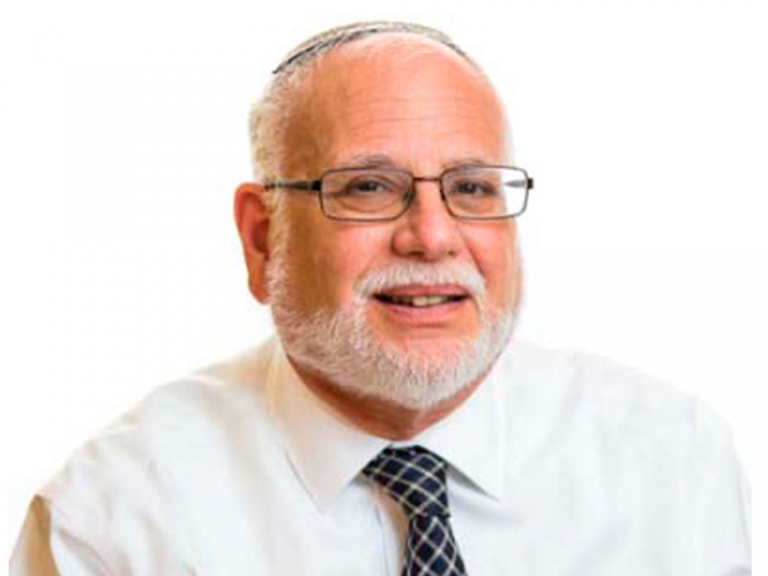D'var Torah by Dr. Kalman Stein, Interim Head of School

Dear Hebrew Academy Community:
The first Pasuk of Vayeshev tells us that Yaakov, who had escaped from the house of Lavan, had survived confrontations with both Esav and an angel, and had lived through the ordeal of Dinah, finally settled down in Eretz Canaan, the homeland of his father. The very next Pasuk immediately begins recounting the conflict between Yosef and his brothers. Explains the Midrash, the juxtaposition of these two Pesukim teaches us that just at the moment that Yaakov thought that both the turmoil and major accomplishments of his life had come to an end and that he could live in peace, he was pounced upon by the anguish of the ugly events of the story of Yosef and his brothers. God asks, reports the Midrash, “Are the righteous not sufficiently satisfied with that which awaits them in the World to Come that they ask to live tranquilly in This World as well?”
Rabbi Chaim Sabbato, in his Ahavat Torah, writes that Yaakov had one more important task to complete, a task of which he wasn’t even necessarily aware. He needed to prepare Yosef to teach the Children of Israel how to survive in the כור הברזל –the smelting furnace—of Egypt through which they would have to pass and be refined before they were ready to receive the Torah and become a holy nation. They would need someone to teach them not to change their names, not to assimilate, to keep God in their minds and in their speech, to believe that God would redeem them. And that is exactly what Yosef modelled for them. It was Yosef who constantly spoke of Hashem and Hashem’s role in his life. In the depths of the pit and, later, of the dungeon into which he was thrown, but also at the heights of power on his throne Yosef demonstrated steadfast faith and Yir’at Shamayim.
How did Yosef learn to do this? For seventeen years while his brothers were out tending the family’s flocks Yosef sat with his father, observing his ways and learning about Yaakov’s struggles and how he overcame them. He came to appreciate עם לבן גרתי ותרי"ג מצוות שמרתי—how Yaakov managed to remain faithful to God while living in the home of Lavan. So, it isn’t surprising that the Midrash teaches that at the moment that Yosef was about to give in to temptation with the wife of Potiphar he drew the strength to resist as his father’s face appeared before him. Yosef not only ruled Egypt, he ruled over himself. And he taught his brothers and their descendants to always see the face of Yaakov Avinu before them as they struggled to survive spiritually in the fiery furnace of slavery.
This is the lesson of Yosef and of Chanukah. The struggle in Egypt was for Bnai Yisrael to keep their Jewish names and appearance and to be sure that Hashem, rather than the gods of Egypt, be their constant point of reference. The Jews of the Second Century BCE whose spiritual and military victories we begin celebrating Sunday night faced the same struggle. The Hellenistic culture which surrounded them was most attractive and enticing. Many Jews, even Jews who at one level or another continued to observe at least the trappings of Jewish ritual, did adopt Greek names and dress, did immerse themselves in Hellenistic culture, and began to adopt a value system based not on God and Torah but on the surrounding culture. Fortunately, there were enough Jews who still were able to see דמות דיוקנו של יעקב—the image of the face of Yaakov and to resist absorption into an alien, pagan culture and lifestyle by waging military and spiritual battle against the Greeks and the Hellenized Jews and, thereby, earning the Miracle of Chanukah.
The lesson for us is rather clear. We, too, live in a secular culture in which there is both beauty and wisdom. And as Modern Orthodox Jews we are not afraid to appreciate, even to internalize, elements of that beauty and wisdom. But we, too, must have the strength to see the image of the faces of our ancestors who preserved Torah and Jewish values through the millennia. We dress pretty much like those around us—although, one hopes, with more of a sense of propriety and modesty—and we don’t all always use our Jewish names but, as was the case 3,500 years ago in Egypt and 2,200 years ago in Eretz Yisrael, the key to our spiritual and national existence must continue to be keeping God and His Torah as our personal and communal values both on our lips and in our hearts and minds.
Dr. Kalman Stein
Interim Head of School

